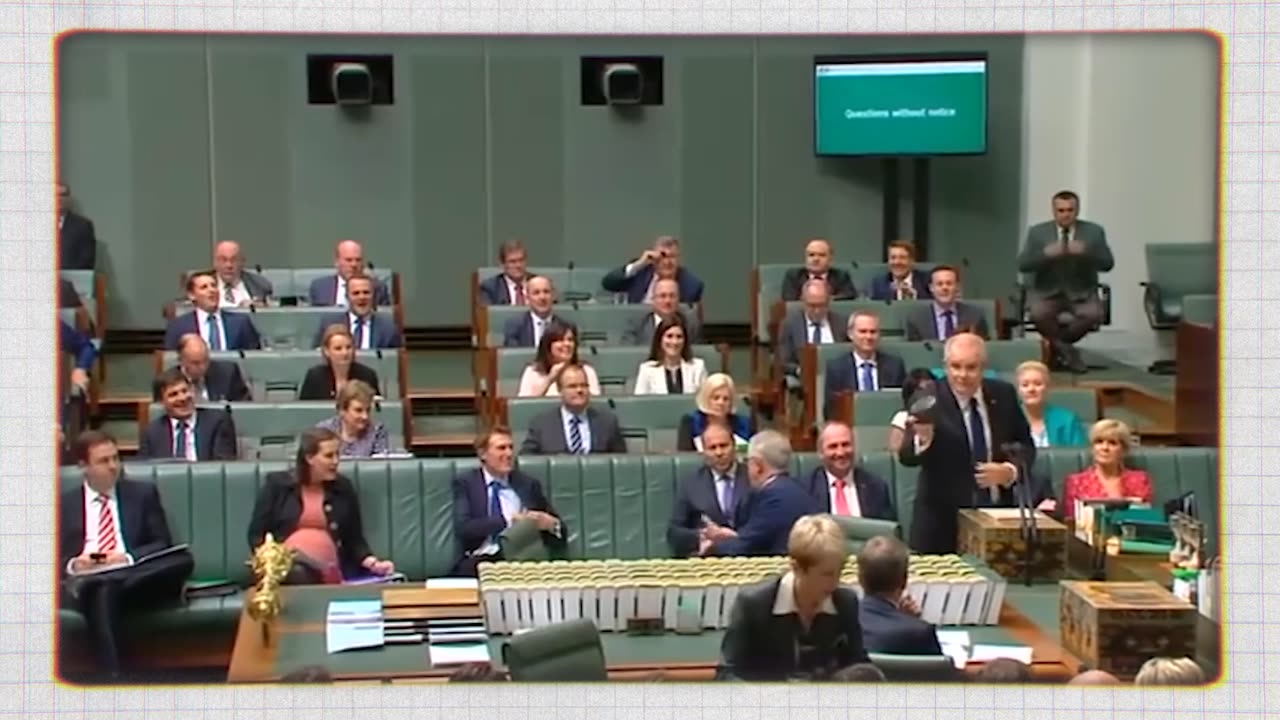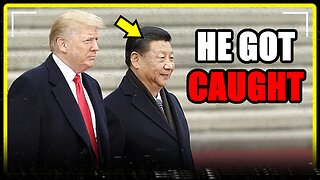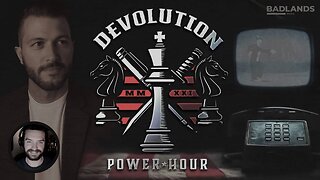Premium Only Content

What's REALLY Holding Back a Third Party in the US? | Explained
Why are there no alternative options in US politics? The majority of Americans believe both the Democrats and Republicans are doing such a bad job at representing them that a third major party is needed. But despite this, Americans that go to vote for someone else are often accused of throwing their vote away.
The voting system in the US puts minor parties at such a disadvantage that most presidential polling projections don’t even bother including them.
The last time the US had a President that wasn’t a Democrat or Republican was the 1850s. The US is pretty much the only major democracy in the world that is exclusively represented by just two political parties on a national level.
So, why is it so hard for a third party to succeed in the US? One major factor is the US pretty much exclusively decides its national elections by First Past the Post voting. In this system, whoever gets the most votes wins, which sounds about as democratic as you can get. But according to Duverger’s Law, almost always ends up leading to a two-party system, largely because of vote splitting.
The way that the US elects its President is a bit different to how it elects people to Congress, but it’s still pretty much First Past the Post with a twist: the Electoral College.
Instead of the winner needing the most votes, they need the most electoral votes and you get electoral votes by winning a state. Pretty much every state is decided by First Past the Post, and the result is ‘winner takes all’. So, it doesn’t matter if you win California by 4 percent or 40 percent, you get every single one of its 54 Electoral College votes.
To get an idea of how much harder this makes it for anyone that isn’t a Democrat or Republican, look no further than the most popular outsider candidate of the past 100 years, a guy called Ross Perot. In 1992, he managed to convince almost 20 million Americans to vote for him as an independent.
But winning almost 20 percent of the popular vote still translated to zero electoral college votes because he didn’t manage to win any states.
The more direct impact third-party candidates have in presidential elections is actually taking votes away from one side or the other, which is why third-party voters will sometimes get criticised during a close election. The most extreme example of this happened in 2000.
Both candidates needed Florida’s 25 electoral votes to win the Presidency and Republican George W Bush ended up winning the state by just 537 votes, 0.009 percent of the vote. Meanwhile 100-thousand people voted for the left-wing Greens candidate, Ralph Nader. If just a fraction of those votes had gone to the centre-left Democrat Al Gore, he would have become the President.
So, why does all of this matter and what’s the actual impact of living in a system where there's pretty much only 2 parties. Firstly, it limits representation. If you’re someone that doesn’t identify with either party, it’s easy to feel like your voice doesn’t matter. It also makes it more difficult for voters to respond to decisions made by their party. For example, if a number of Democrat voters aren’t happy with their party’s policies on the Middle East, they don’t really have many options, particularly if they disagree with the Republican party’s policies even more.
In comparison, let’s take a look at how a similar situation played out in Australia in 2022. Traditional liberal voters who weren’t happy with their party’s direction on issues like climate change but would never consider supporting Labor, decided to instead back a number of ‘teal’ independents who more closely lined up with their values.
The voters ended up with politicians that represented them without having to compromise. Another big side effect of an exclusively two-party system is that it can contribute to a more polarised and toxic political environment. If there’s no option C, parties only need to be the lesser of two evils. This doesn’t just lower the bar of expectations, it also incentivises parties to be negative because you just need to make your opponent look worse than you are.
Constant negativity makes things toxic, which makes compromise harder and the polarisation can begin to spiral. In a multi-party system, if all you do is attack, you might be successful at making another party look bad, but it doesn’t guarantee voters are going to vote for you instead. - Explainer by Nicholas Maher
-
 3:40:01
3:40:01
FreshandFit
7 hours agoEngaged Chick Gets EXPOSED For Having OF
54K100 -
 9:07
9:07
MattMorseTV
15 hours ago $2.12 earnedTrump just BLASTED the CCP.
13.5K36 -
 10:47
10:47
Nikko Ortiz
14 hours agoThese Tik Tok Clips Are Extremely Painful...
8.21K3 -
 18:54
18:54
GritsGG
13 hours agoIs This SMG the New #1 Close Range Option on Warzone?
4.23K3 -
 2:13:09
2:13:09
Side Scrollers Podcast
18 hours agoDruski/White Face Controversy + Women “Experience Guilt” Gaming + More | Side Scrollers Live
43.1K5 -
 16:02
16:02
The Pascal Show
14 hours ago $0.20 earned'HE WAS FAKE CRYING!' Witness Says Jake Haro BEGGED FOR HELP Finding Emmanuel Thru Fake Tears
8.52K1 -
 2:21:10
2:21:10
Badlands Media
11 hours agoDevolution Power Hour Ep. 386: Epstein Disclosures, Clinton Foundation, and Trump’s Wartime Authority
206K19 -
 2:07:22
2:07:22
Inverted World Live
11 hours agoGiant Asteroid Skims Past Earth Today | Ep. 102
51.1K6 -
 3:11:00
3:11:00
TimcastIRL
9 hours agoTrump Kills 11 Narco Terrorists, Democrats Warn War With Venezuela Coming | Timcast IRL
187K209 -
 13:07
13:07
Robbi On The Record
3 days ago $6.39 earnedSweet Poison: The Big Fat Lie That’s Killing America
58.9K27